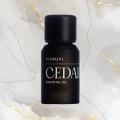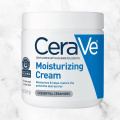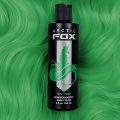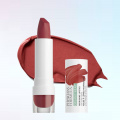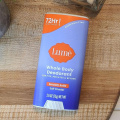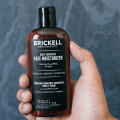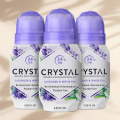Coconut Oil for Dandruff: A Natural Solution for Flake-free Scalp
Coconut oil for dandruff is a popular home remedy that's been followed for years. Discover how this versatile ingredient can bid farewell to those pesky flakes.
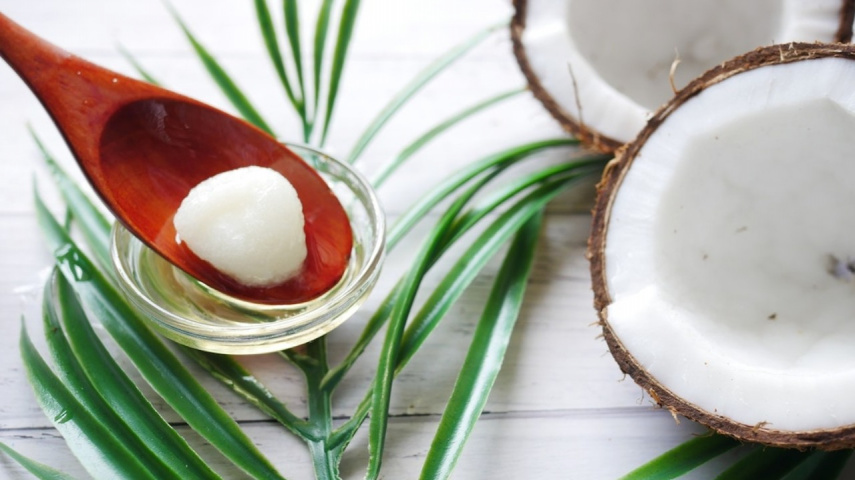
Dandruff, also known as pityriasis capitis, affects millions worldwide, with symptoms like an abnormally greasy, dry, or infected scalp and excessive flaking of dead skin. But coconut oil for dandruff can come to the rescue. This oil is rich in vitamins and essential fatty acids. Thus it works wonders by moisturizing the scalp and regulating sebum buildup. It also has antibacterial and deep hydrating abilities, which are vital to fight against dandruff.
If you're tired of using chemical-laden shampoos for dandruff, then consider coconut oil as your natural treatment. Here, let's discover the pros and cons of using them as an antifungal agent for scalp health.
Dandruff And Its Causes

Dandruffs are itchy and annoying flakes on your scalp. About half the global adults face this problem. It can happen for various reasons, like a pesky fungus or not washing your hair enough. Sometimes, it's not just flakes; your scalp might get red and inflamed, and could even lead to hair loss.
Although the precise cause is unknown, it is thought to be a combination of hereditary and environmental factors. Your hair care routine like not washing your hair or washing it too much, using different hair products, too much sun, tight hats, your diet, dust, and dirt all can trigger dandruff. Plus, stress, cold weather, and a fungus called Malassezia can make your dandruff worse (1).
Seborrheic dermatitis is a skin condition that can make your scalp oily and flaky. Likewise, even super dry skin (xerosis cutis), can cause dandruff (2), (3). This happens especially if you wash your hair a lot with hot water. Other things like psoriasis, eczema, or allergies to hair products can be the culprit too.
Some people just seem to have a dandruff-prone scalp, and the reason behind it is quite unfamiliar. But, interestingly, it's often the men who deal with this more than the women.
Is Coconut Oil Good for Dandruff And Dry Scalp?

Our skin is always renewing itself, shedding tiny, usually invisible flakes. But sometimes, especially on the scalp, this process speeds up. This leads to those oily, white flakes on the scalp, skin, and clothes.
The dandruff-causing Malassezia fungus helps break down skin oils. But when there's too much of it, it leaves behind oleic acid that can irritate your skin, causing dryness and dandruff (4).
Some people say virgin coconut oil or unrefined coconut oil can mostly help with such dandruff. They claim it moisturizes the scalp, restoring its health and reducing dandruff flakes. This moisturizing ingredient is even found in some conditioners and shampoos.
It also has antifungal and antioxidant properties which makes it one of the popular home remedies for dandruff for ages. Unlike some strong chemical shampoos that can harm your hair roots and attract dandruff, coconut oil is chemical-free, mild, and works to tackle dandruff from the root. Scroll further to know if it really works against dandruff.
The Science Behind Using Coconut Oil for Dandruff

Coconut oil has some cool benefits that can tackle dandruff and dry skin at the same time. Most of its promising effects are scientifically approved ones.
1. Eczema - In a clinical study, they gave coconut oil to kids with eczema, and it worked better than regular oil (5). The coconut oil went deep into their skin and formed a shield to protect it from getting all dry. While they didn't study dandruff, if you have scalp eczema, it might help you too.
2. Antimicrobial - Coconut oil is also like a natural germ-fighter. It has ingredients like lauric acid that can take on Malassezia, the dandruff-causing fungus. A scientific study has proven that coconut oil was effective on eczema and the fungus together. Thus coconut oil could possibly help you with dandruff too (6).
Caprylic acid or capric acid is also one of the fatty acids in coconut oil. It is a medium-chain fatty acid that has anti-inflammatory properties, antibacterial properties, and antifungal properties. These characteristics make them effective treatments for scalp ailments.
3. Moisturizing - In a 2014 study, coconut oil was found to effectively hydrate the scalp and stop moisture loss in patients with atopic dermatitis (5). This nourishing property of coconut oil can also help with dandruff.
4. Healthy Microbes - A recent study in 2021 found that coconut oil keeps your scalp's microbiota in good shape. It brought in a fungus, M. globosa, which is a vital component of the fungal scalp microbiome, and it also kicked out dandruff (7).
5. Inflammation - It is also proven that coconut oil might calm down inflammation, itchiness, and pain that comes as a result of psoriasis or seborrheic dermatitis (8). But we need more research to be sure.
How to Treat Dandruff with Coconut Oil

Coconut Oil Conditioning Treatment
Coconut oil for dry scalp and damaged hair is one of the best conditioning treatments out there. It can penetrate deep into your hair and even help with dandruff. Here's how you can use it for a deep conditioning treatment.
Ingredients:
- 2-3 tablespoons of coconut oil (adjust for your hair length)
- Shower cap or warm towel
- Wide-toothed comb
Procedure:
- Wash your hair with shampoo but skip the conditioner.
- While your hair shaft is still slightly damp, use a wide-toothed comb to section it.
- Take some coconut oil, rub it between your palms, and apply it to your hair.
- Ensure you cover your scalp and every strand, from roots to tips.
- Gather your hair up and either cover it with a shower cap or wrap it in a warm towel (you can warm the towel with a blow dryer). The heat will help the oil penetrate better.
- Leave it on for at least 30 minutes. You can even leave it overnight and wash it off the next morning to nourish your dry scalp.
- Wash your hair thoroughly with shampoo and lukewarm water to remove any oil residue.
Hot Oil Massage with Coconut Oil
Dandruff can occur when your scalp is too dry. Massaging your scalp with coconut oil not only spreads the oil evenly but also moisturizes your scalp and improves blood circulation, reducing dandruff. Here's how:
Ingredients:
- 2-3 tablespoons of coconut oil (adjust for hair length)
Procedure:
- Heat the coconut oil on the stove. Make sure it's not too hot; you should be able to touch it comfortably.
- Dip your fingers in the oil and use them to massage your dry and itchy scalp.
- Massage your scalp for 10-15 minutes, covering every part.
- Use the remaining oil to coat your hair.
- Leave it on for 30 minutes, then wash it off with a good shampoo.
Coconut Oil Hair Mask for Dandruff (with Neem)
Neem is a fantastic natural remedy for dandruff due to its antibacterial, anti-inflammatory, and antifungal properties (9). Here's a hair mask recipe:
Ingredients:
- 9-10 dried neem leaves
- 3 tablespoons coconut oil
Method:
- Crush the neem leaves into a powder using a mixer.
- Create a paste by mixing the crushed leaves with coconut oil.
- Gently massage this mixture onto your scalp in a circular motion for about 10 minutes.
- Leave it on your scalp for a few hours.
- Wash it off with a mild conditioner and shampoo.
- Repeat this process at least twice a week to effectively eliminate dandruff.
Tips While Using Coconut Oil on Hair and Scalp
- Use Sparingly: Too much application of coconut oil can lead to greasy, dull hair. Start with a small amount, especially if you have fine hair.
- Avoid Overnight Soaking: Leaving coconut oil on your hair and scalp overnight can make your hair greasier and potentially clog pores, as it is comedogenic. This may lead to skin issues like acne.
- Thoroughly Wash Out: If using coconut oil as a deep conditioning mask, ensure you wash it out thoroughly to prevent buildup.
- Leave-In Treatment: When using coconut oil as a leave-in treatment, apply a small amount and focus on the midsection to the ends of your hair for best results.
Side Effects of Coconut Oil for Dandruff

Coconut oil is often seen as a safe, natural remedy. However, it's essential to be aware that even natural products can have side effects, especially if you have sensitive skin or conditions like eczema.
Before using coconut oil on your scalp, consider these points:
1. Patch Test - To check if your skin reacts, apply a small amount of coconut oil to your arm and wait for a day. Look out for signs like hives, rashes, or itchiness. Some reactions might appear after several hours.
2. Seborrheic Dermatitis - If your dandruff is due to seborrheic dermatitis, which makes your scalp oily, coconut oil might not be suitable (10). It could worsen the situation by adding more oil.
3. Allergic Reaction - If you notice widespread rashes and hives after using coconut oil and experience difficulty breathing, it could indicate an allergic reaction.
In such cases, contact your doctor immediately as it may require emergency treatment. While coconut oil can be a helpful remedy for many, it's crucial to consider your skin type and any underlying conditions before using it to treat dandruff.
When to Seek Professional Help for Dandruff
Dandruff is usually a minor issue that you can handle at home, but there are times when it's a good idea to see a skin specialist or a dermatologist. Here's when you should consider making an appointment.
- Home Remedies Aren't Working: If you've tried things like coconut oil and they haven't made a difference, it might be time to consult a dermatologist.
- Over-the-counter Shampoos Aren't Helping: Over-the-counter anti-dandruff shampoos are effective for many, but if you've used them for weeks with no relief, it's time to see a professional.
- Severe Dandruff And Itchiness: If your dandruff is severe and your scalp is crazy itchy, a dermatologist can provide guidance and relief.
- Scalp Issues: If your scalp appears red, swollen, or has open sores, it's definitely a reason to seek expert advice.
- Weakened Immune System: If your immune system isn't in top shape, it can affect your skin. In such cases, a dermatologist can provide specialized care.
Your dermatologist will carefully examine your scalp to pinpoint the exact cause of your dandruff. Once they have a diagnosis, they'll create a tailored dandruff treatment plan to help you get rid of those pesky flakes for good.
Tips to Maintain a Healthy Dandruff-free Scalp

1. Adjust Your Diet: Poor nutrition can contribute to dandruff. Foods high in carbs and sugar can lead to yeast buildup on your skin. Cutting back on these foods may help if you're prone to dandruff.
2. Proper Hair Washing: Dry shampoos are convenient but can lead to scalp build-ups. Hence, regularly shampoo your hair to reduce oil and dead skin cell buildup. Use a moisturizing shampoo at least twice a week to keep your scalp healthy without overdrying it.
3. Scalp Exfoliation: Just like your skin, your scalp needs exfoliation. Try a scalp exfoliator with salicylic acid or granules to remove dead skin cells that cause flaking. Use it twice a week on wet, shampooed hair.
4. Use Specialized Dandruff Shampoo: Experts recommend dandruff shampoos containing zinc or sulfur, available over-the-counter or by prescription. These shampoos effectively reduce yeast populations on the scalp.
5. Direct Scalp Application: Dandruff shampoos can dry out your hair, so apply them directly to the scalp and massage gently for at least five minutes. Ensure the active natural ingredients have time to work.
6. Try Hair Oil: Apply oil-based treatments to your scalp to balance oil production. Gently warm up coconut oil and apply it. Be cautious not to overheat it. You can also use warm oil products or pre-wash scalp oils.
7. Avoid Scratching: Though itchy, scratching worsens inflammation and irritation. Gentle massages are a better choice, allowing treatment to penetrate the scalp.
While waiting for results, you can keep hair in a ponytail or updo to hide flakes. Also, avoid itching, as it can lead to scalp wounds and infections.
Conclusion
Coconut oil for dandruff is one of the safest natural remedies preferred by many people. However, it's essential to use it in moderation, as too much can make your hair greasy and clog your pores. Make sure to wash it out thoroughly after applying. If you still experience itching or other skin reactions, stop using it and try other solutions. There are quite a number of anti-dandruff shampoos and solutions in the market to try. The results may vary not just with the product but also with patience and proper use.
ALSO READ: Coconut oil for hair growth: Ways to use it for your tresses





 JOIN OUR WHATSAPP CHANNEL
JOIN OUR WHATSAPP CHANNEL




































